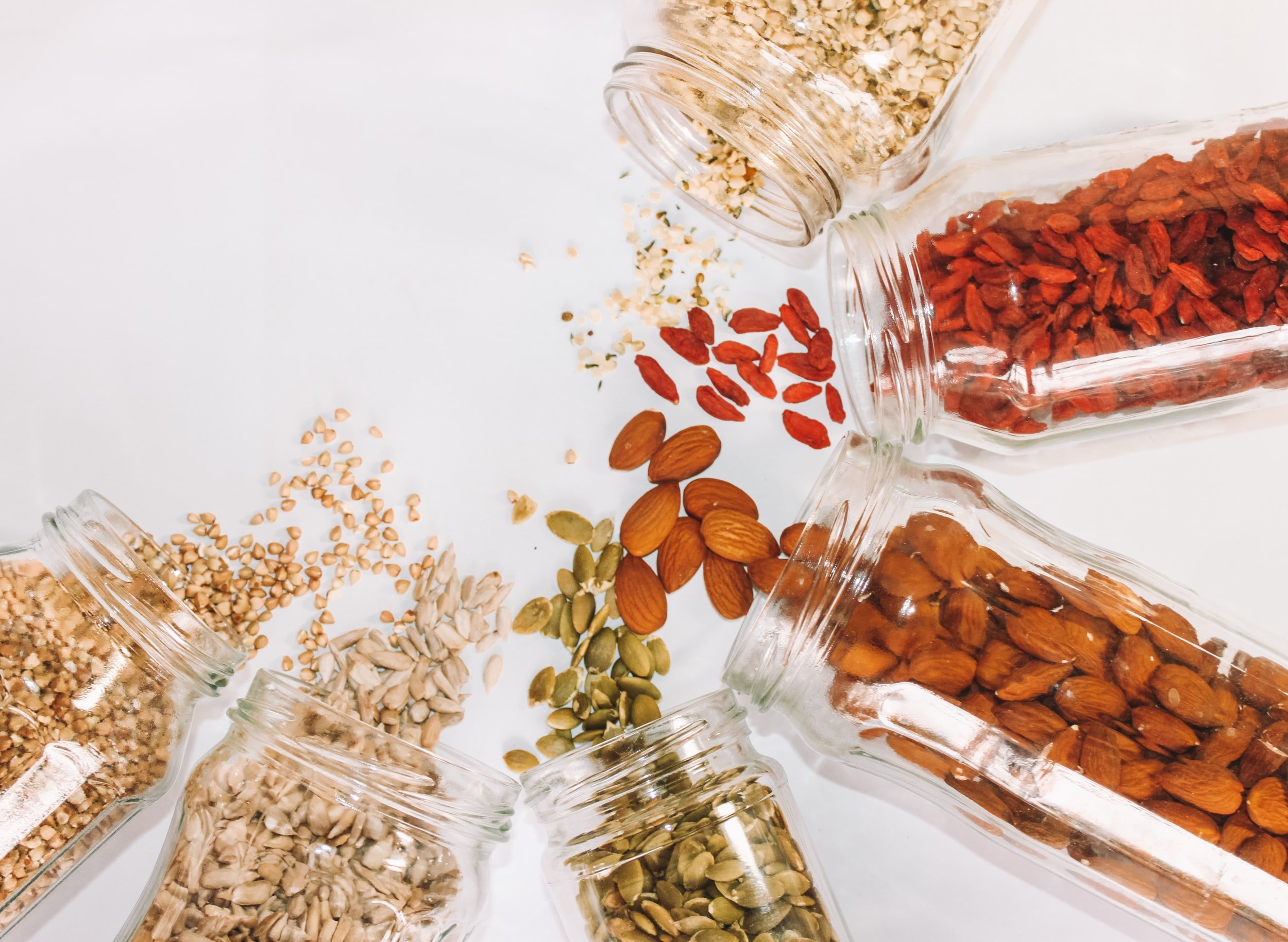Do I Need to Take Magnesium for PCOS?
If you have PCOS then you may be overwhelmed with the choice of supplements out there which claim to help manage your symptoms.
PCOS is a common endocrine disorder with reproductive and metabolic consequences which impacts 1 in 10 people with ovaries in the UK. Symptoms of PCOS include acne, oily skin, hair loss, excessive hair growth, irregular periods, infertility and weight gain.
Magnesium is a mineral that helps us turn the food we consume into energy plus helps our parathyroid glands work properly. Magnesium is found in a variety of foods including spinach, nuts and wholemeal bread (1).
As magnesium has an impact on glucose metabolism, it is suggested that magnesium supplementation could positively impact insulin resistance in people with PCOS. Up to 95% of people with PCOS are estimated to have insulin resistance, regardless of body size (2), and it is a key player in the PCOS pathway.
One study looked at the impact of supplementing with magnesium and vitamin E on 60 people with PCOS for 3-months. This double-blind randomised control trial found that supplementation of magnesium and vitamin E reduced serum insulin levels, serum triglycerides and VLDL cholesterol levels (3).
Another study looked at the effect of supplementing magnesium and zinc for people with PCOS for 12 weeks and found reductions in inflammatory markers. People with PCOS are often in a state of chronic inflammation so this study suggests that zinc and magnesium may lower inflammation levels (4).
Similarly, a study investigated the impact of magnesium supplementation combined with zinc, calcium and vitamin D on 40 women with PCOS and found a significant reduction in hirsutism and inflammatory biomarkers (5).
Despite these promising studies, we require more evidence to be able to definitively recommend magnesium for people with PCOS. We need studies of a higher quality, longer length and with more participants.
Taking less than 400mg of magnesium is unlikely to do any harm (1) but speak to your healthcare professional before taking supplements.
Magnesium supplements are just one of the supplements that you may want to include in your diet. You can read more about some of the other common supplements in PCOS on the blog.
References
NHS, 2019. Vitamins and Minerals Other [online]. Available from: https://www.nhs.uk/conditions/vitamins-and-minerals/others/
Calcaterra V, Verduci E, Cena H, Magenes VC, Todisco CF, Tenuta E, Gregorio C, De Giuseppe R, Bosetti A, Di Profio E, Zuccotti G. Polycystic Ovary Syndrome in Insulin-Resistant Adolescents with Obesity: The Role of Nutrition Therapy and Food Supplements as a Strategy to Protect Fertility. Nutrients. 2021 May 28;13(6):1848.
M. Jamilian, N.K. Sabzevar, Z. Asemi. The effect of magnesium and vitamin E co- supplementation on glycemic control and markers of cardio-metabolic risk in women with polycystic ovary syndrome: a randomized, double-blind, Placebo-Controlled Trial. Horm. Metab. Res., 51 (2) (2019), pp. 100-105
Faraneh Afshar Ebrahimi, Fatemeh Foroozanfard, Esmat Aghadavod, Fereshteh Bahmani, Zatollah Asemi. The effects of magnesium and zinc co-supplementation on biomarkers of inflammation and oxidative stress, and gene expression related to inflammation in polycystic ovary syndrome: a randomized controlled clinical trial. Biol. Trace Elem. Res., 184 (2) (2018), pp. 300-307
Maryam Maktabi, Mehri Jamilian, Zatollah Asemi. Magnesium-zinc-calcium-vitamin D co-supplementation improves hormonal profiles, biomarkers of inflammation and oxidative stress in women with polycystic ovary syndrome: a randomized, double-blind Placebo-Controlled Trial. Biol. Trace Elem. Res., 182 (1) (2018), pp. 21-28.

